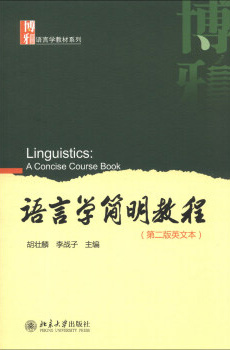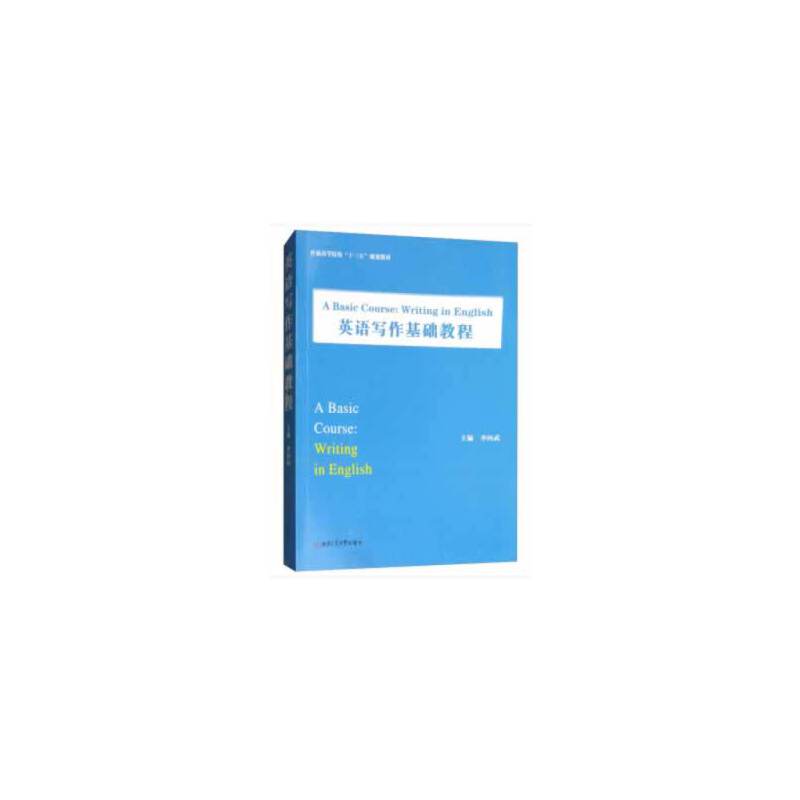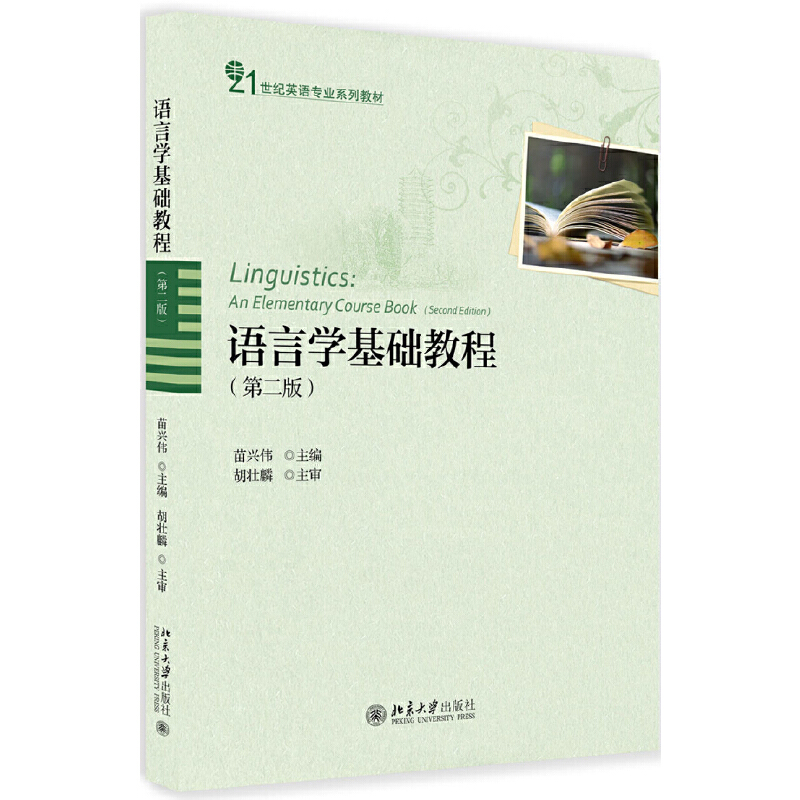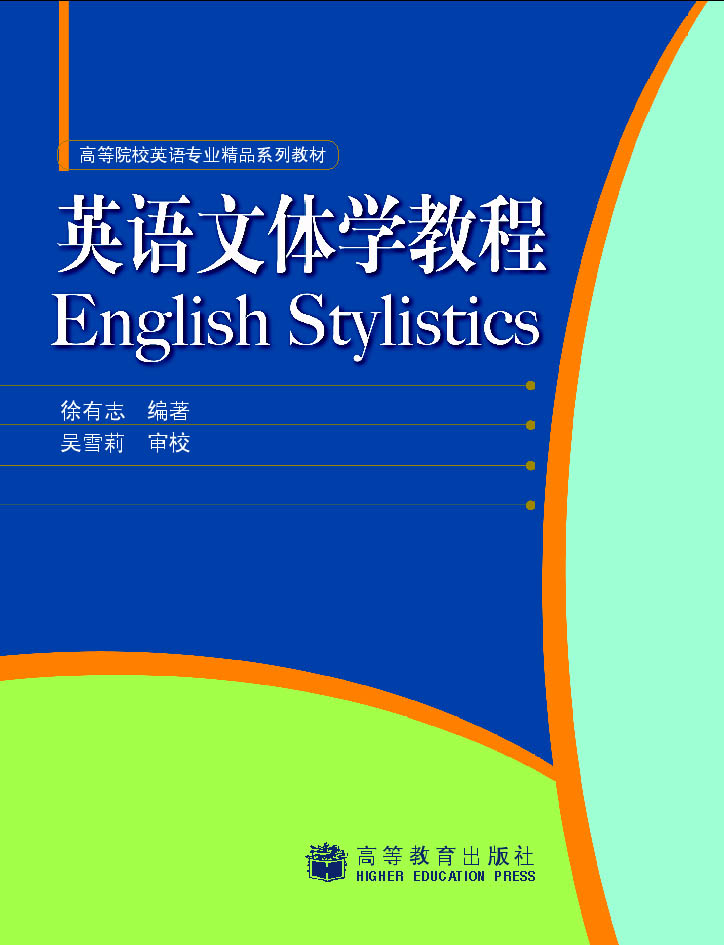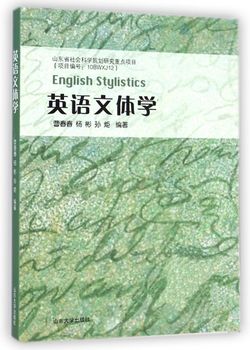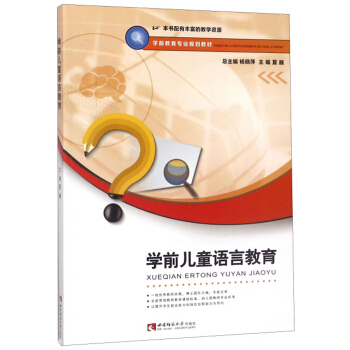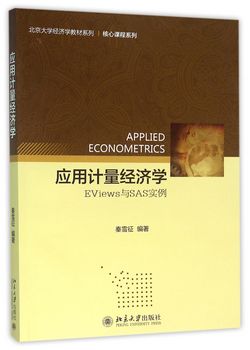语言学简明教程(第二版英文本) / 博雅语言学教材系列
定价:¥29.00
作者: 胡壮麟,李战子
出版时间:2013-08
出版社:北京大学出版社
- 北京大学出版社
- 9787301218754
- 2
- 79700
- 平装
- 16开
- 2013-08
- 348
- 275
- 汉语言
作者简介
内容简介
《语言学简明教程》以语言学初学者为对象,有中、英文两个版本,由我国著名语言学家胡壮麟教授领衔主编。 教材涵盖了语言学及其主要分支的核心内容,包括语音学、音位学、形态学、词汇学、句法学、语义学、语用学、社会语言学和认知语言学等。展开方式深入浅出,有助于不同层次、不同专业的学生了解语言学,对于英语专业学生扩展人文知识、反思语言学习方法以及准备英语专业八级考试、研究生入学考试等均有很大帮助。 在保证逻辑严密性、学科整体性的基础上,教材在趣味性、通俗性方面做了积极的尝试,通过大量的当代语言实例、生动的图片图表、浅
目录
Chapter 1 Language and Linguistics
1.1 Introduction
1.2 History of Linguistics
1.3 Why Study Lingtustics?
1.4 Properties of Language
1.5 Body Language and Other "Languages"
1.6 Functions of Language
1.7 Branches in Linguistics
1.8 FAQ about Studying Linguistics
1.9 Summary
Chapter 2 Phonetics: Speech Sounds
2.1 Introduction
2.2 Spelling, Pronunciation and Phonetic Transcription
2.3 Speech Organs
2.4 The Phonetic Properties of Speech Sounds
2.5 Vowels
2.6 Summary
Chapter 3 Phonology: Sound Patterns
3.1 Introduction
3.2 The Distinctive Sounds of a Language
3.3 Beyond the Sound Segments
3.4 Summary
Chapter 4 Lexicon
4.1 Introduction
4.2 What Is Word?
4.3 Classification of Words
4.4 Morpheme and Its Types
4.5 Word formation
4.6 Summary
Chapter 5 Grammar: Clause
5.1 Introduction
5.2 Word Classes and Word Order
5.3 Clause Types
5.4 Grammatical Categories
5.5 "Half-clauses"
5.6 Semantic Roles of Clause Elements
5.7 How Do We Play with Clauses?
5.8 Summary
Chapter 6 Grammar: Text
6.1 Introduction
6.2 Theme and Textual Function
6.3 Information Structure
6.4 Cohesion
6.5 Conversation Analysis
6.6 Summary
Chapter 7 Language and Meaning
7.1 Introduction
7.2 Word Meaning .
7.3 How Are Word Meanings Related?
7.4 How Is Word Meaning Analyzed?
7.5 Sentence Meaning
7.6 Context and Implicature
7.7 Summary
Chapter 8 Pragmatics: Mearung in Use
8.1 Introduction
8.2 Deixis
8.3 Presupposition
8.4 Conversational lmplicature
8.5 Linguistic Politeness
8.6 Speech Acts
8.7 Summary
Chapter 9 Cogrutive Linguistics:Language and Cognition
Chapter 10 Writing System
Chapter 11 Language Change
Chapter 12 Varieties and Variation
1.1 Introduction
1.2 History of Linguistics
1.3 Why Study Lingtustics?
1.4 Properties of Language
1.5 Body Language and Other "Languages"
1.6 Functions of Language
1.7 Branches in Linguistics
1.8 FAQ about Studying Linguistics
1.9 Summary
Chapter 2 Phonetics: Speech Sounds
2.1 Introduction
2.2 Spelling, Pronunciation and Phonetic Transcription
2.3 Speech Organs
2.4 The Phonetic Properties of Speech Sounds
2.5 Vowels
2.6 Summary
Chapter 3 Phonology: Sound Patterns
3.1 Introduction
3.2 The Distinctive Sounds of a Language
3.3 Beyond the Sound Segments
3.4 Summary
Chapter 4 Lexicon
4.1 Introduction
4.2 What Is Word?
4.3 Classification of Words
4.4 Morpheme and Its Types
4.5 Word formation
4.6 Summary
Chapter 5 Grammar: Clause
5.1 Introduction
5.2 Word Classes and Word Order
5.3 Clause Types
5.4 Grammatical Categories
5.5 "Half-clauses"
5.6 Semantic Roles of Clause Elements
5.7 How Do We Play with Clauses?
5.8 Summary
Chapter 6 Grammar: Text
6.1 Introduction
6.2 Theme and Textual Function
6.3 Information Structure
6.4 Cohesion
6.5 Conversation Analysis
6.6 Summary
Chapter 7 Language and Meaning
7.1 Introduction
7.2 Word Meaning .
7.3 How Are Word Meanings Related?
7.4 How Is Word Meaning Analyzed?
7.5 Sentence Meaning
7.6 Context and Implicature
7.7 Summary
Chapter 8 Pragmatics: Mearung in Use
8.1 Introduction
8.2 Deixis
8.3 Presupposition
8.4 Conversational lmplicature
8.5 Linguistic Politeness
8.6 Speech Acts
8.7 Summary
Chapter 9 Cogrutive Linguistics:Language and Cognition
Chapter 10 Writing System
Chapter 11 Language Change
Chapter 12 Varieties and Variation

